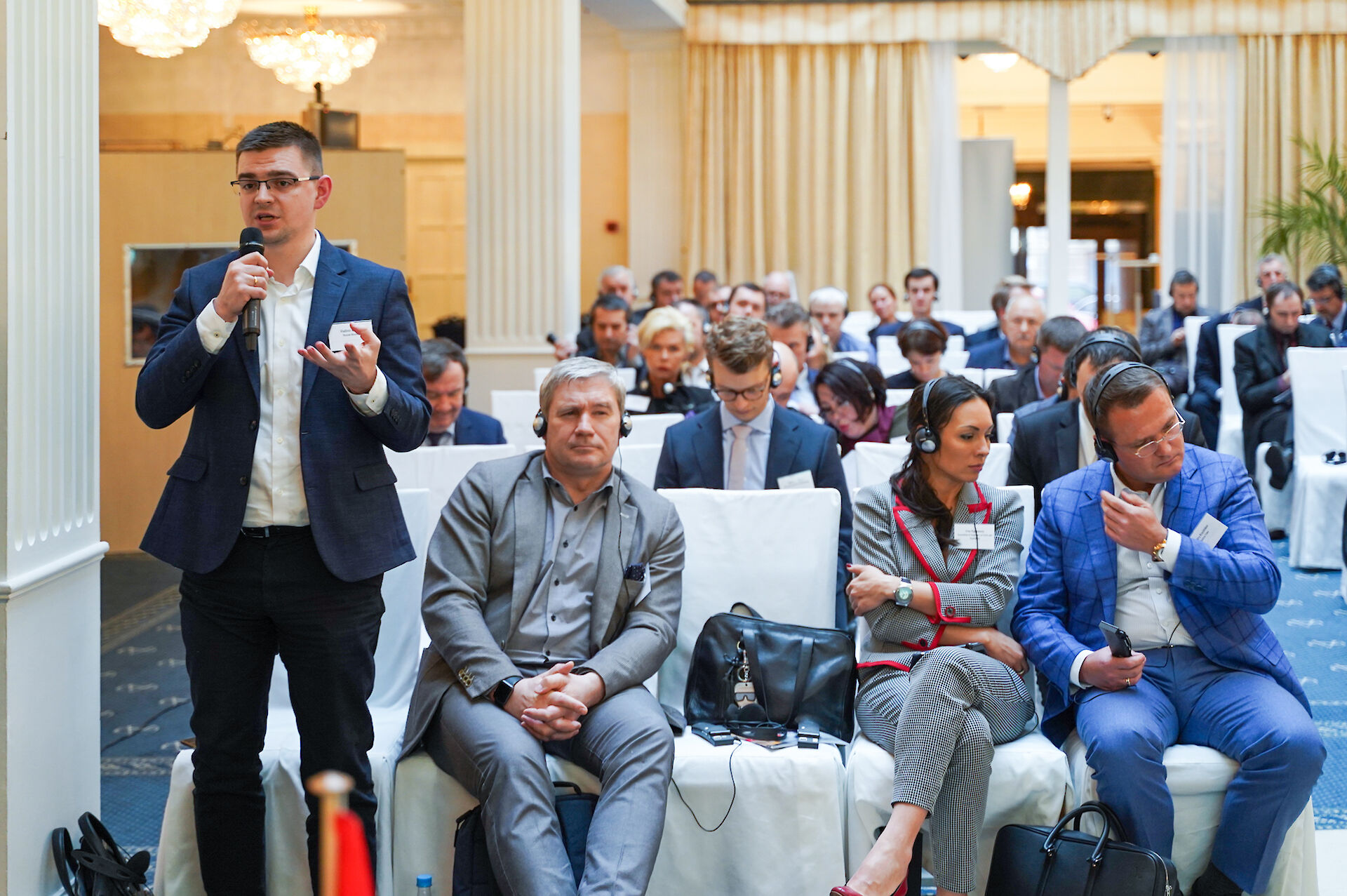The Port of St Petersburg is very centrally located, not far from the heart of the historic city. The challenges there on traffic control and environmental topics therefore resemble those in the Port of Hamburg. With increasingly large vessels being handled, throughput per ship and call in the port is also increasing. Just how the two partners are to control freight traffic in their ports more efficiently, at the same time contributing towards relief of the environment, was discussed at the Fourth Hamburg Workshop in St Petersburg: ‘Digitalization in the port: Best-practice examples from Hamburg’ on 14 February 2019.
Invited by Port of Hamburg Marketing (HHM) and Baltica Trans, an HHM member, more than 100 participants attended the workshop, which was part-funded by the Hamburg administration. They were unanimous in seeing digitalization in the traffic control and logistics field as offering a host of opportunities for controlling traffic flows more efficiently, and better shaping working processes, in the port and port traffic. The digitalization strategy pursued in Hamburg and other ports for a number of years has produced some initial approaches and successful applications. The focus here is on Hamburg Port Authority’s SmartPort initiative, supplemented by numerous progressive solutions from companies in the logistics sector.
After a welcome speech from Dr Torsten Sevecke, Under-Secretary in Hamburg’s Ministry of Economics, Transport and Innovation, Jens Meier, CEO Hamburg Port Authority (HPA), spoke on the prospects for the ‘Digital Transformation as a Competitive Advantage for the Port of Hamburg’, introducing Russian participants to practical examples and future projects from the Port of Hamburg.
Further topics and speakers were:
- ‘The Customs in the digital age of the Port of Hamburg’, Michael Schrader, Deputy Director and Head of Section B of Customs Headquarters in Hamburg;
- ‘Digitalization in transport and logistics’, Victoria Tscherbakova-Slyusarenko, lead expert and Executive Director of the ‘Digital Transport and Logistics’ Association in the Russian Ministry of Transport;
- ‘Acceleration of freight handling through process automation’, Dr. Alexander Geisler, DIHLA-DAKOSY Interest Group of Hamburg Liner Agencies;
- ‘How digitalization facilitates port partnerships’, Gerald Hirt, CEO of Hamburg Vessel Coordination Center.
Speakers and participants then joined in a discussion chaired by Ingo Egloff, Joint CEO of Port of Hamburg Marketing.
Official and port business representatives from Hamburg, along with Natalia Kapkajewa, head of the Port of Hamburg Representative Office in St Petersburg, expressed their satisfaction over the extremely positive response from those attending. The networking session after the workshop offered participants ample opportunity for forging contacts and exchanging experience.
“Many years of excellent cooperation between the two port cities forms a splendid basis for continuing to organize workshops on logistics, environmental and IT topics in future. With the presentation on interesting best-practice solutions from Hamburg, we are also promoting a meeting of minds between experts from the two cities and facilitating the transfer of know-how between Hamburg and St Petersburg,” said Natalia Kapkajewa.
In 2018 a total of around 349,000 TEU were handled in the Port of Hamburg’s container traffic with Russian ports. A total of 15 liner sevices link Hamburg with the ports in St Petersburg, Bronka, Ust-Luga, Kaliningrad, Archangel and Murmansk.
Hamburg and St Petersburg are linked by many years of city twinning, a relationship also boosted by the friendship between the two ports. For instance, representatives of the two cities and ports regularly engage in dialogue at specialist events, port receptions and exchange visits.

